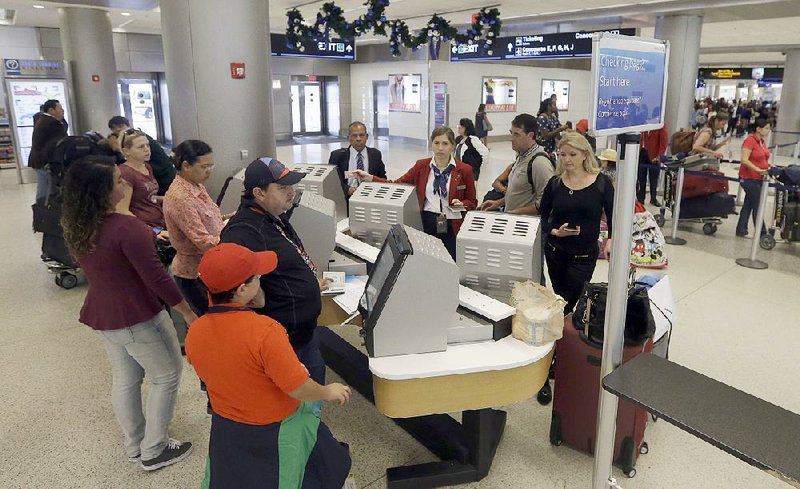U.S. airlines are poised to finish 2015 with a record haul from fees and other ancillary revenue.
The tally for the six largest carriers will be $18.1 billion, according to consultant IdeaWorksCompany.com. About 55 percent of the total comes from the sale of frequent-flier miles to other companies for use as rewards, IdeaWorks estimated. Most of the rest is paid by individuals, for services such as checked-bag charges and in-flight food sales.
Ancillary revenue offers a bright spot for a U.S. industry confronting the lowest average domestic ticket prices since 2010. With discounters such as Spirit Airlines Inc. piling on extra seats, major carriers including American Airlines Group Inc. have cut fares to avoid losing passengers in competitive markets.
"The ability for airlines to raise the ticket prices is really hampered by competition," said IdeaWorks President Jay Sorensen, a former Midwest Airlines executive. But, he said, as many as four out of 10 passengers are willing to "pay extra for better service."
Worldwide, ancillary revenue may rise to $59.2 billion this year, more than double the $22.6 billion total in 2010, the first year that IdeaWorks tracked the charges. The U.S. tally has almost tripled in that span, according to IdeaWorks.
The biggest surprise of 2015 was the "rapid acceptance" of the fees in Europe, with airlines including Deutsche Lufthansa AG introducing options such as paying less for a seat with no checked bag, IdeaWorks said.
"Look for this style to be adopted by airlines all around the world, which should boost ancillary revenue even higher for 2016," the consultant said.
The fare squeeze has been a drag on stocks this year even as the biggest six carriers head toward a collective profit of $18 billion. While that's a turnabout from the $58 billion in collective losses by the industry in the nine years ended in 2009, the Bloomberg U.S. Airlines Index fell 4.4 percent this year through Monday. The gauge had surged at least 78 percent in each of the past two years.
The $18.1 billion in extra fees and charges would be about 12 percent of the combined revenue of the six largest U.S. carriers this year, based on estimates compiled by Bloomberg.
Domestic coach tickets averaged $434 for the first 10 months of 2015, according to Airlines Reporting Corp. data compiled by Bloomberg.
"I can tell you from experience it is very difficult to increase fares rapidly," Southwest Airlines Co. Chief Executive Officer Gary Kelly said during an Oct. 22 conference call. "Customers hate that and it tends to chase away demand very rapidly."
Business on 11/18/2015
